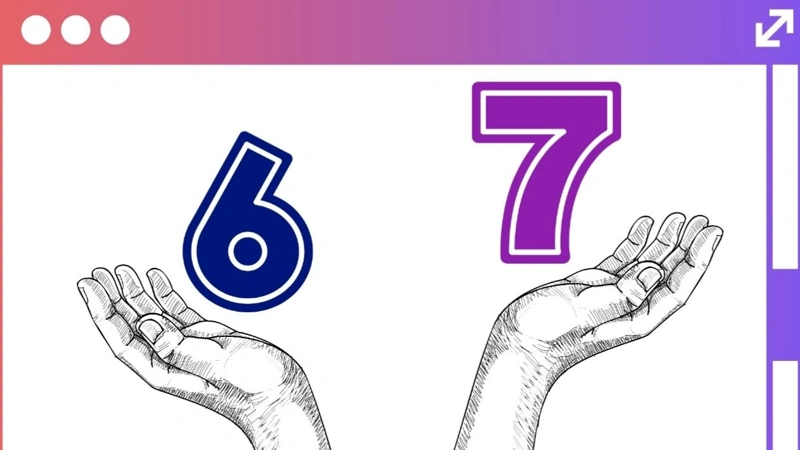Linguistic trends or language evolution: The ‘word’ of 2025 isn’t actually a word
Dictionary.com has chosen the number “67” as its Word of the Year, following months of growing attention across news reports and social media platforms, Kazinform News Agency correspondent reports.

“The Word of the Year isn’t just about popular usage; it reveals the stories we tell about ourselves and how we’ve changed over the year. And for these reasons, Dictionary.com’s 2025 Word of the Year is ‘67,’” the announcement reads.
According to Dictionary.com, interest in “67” began rising in the summer of 2025, with searches increasing more than sixfold. The term is linked to a viral song and videos on platforms such as TikTok, often paired with a specific hand gesture. While its meaning remains unclear, some users say it expresses a sense of being “so-so” or uncertain in casual conversation.
The trend has spread rapidly among school-aged audiences, with many parents and teachers reporting difficulty understanding or addressing the phrase. Experts say the popularity of “67” illustrates how digital culture creates inside jokes recognized across regions. The website noted that most other two-digit combinations showed no comparable surge in interest this year.
“Perhaps the most defining feature of ‘67’ is that it’s impossible to define. It’s meaningless, ubiquitous, and nonsensical. In other words, it has all the hallmarks of brainrot. It’s the logical endpoint of being perpetually online - scrolling endlessly, consuming content fed to users by algorithms trained by other algorithms. And what are we left with in the wake of this relentless sensory overload? ‘67,’” the dictionary explains.
Linguists note that the rise of “67” reflects how quickly new expressions can spread online as younger generations shape public discourse. Dictionary.com says it selects terms that influence the way people communicate both online and in daily life:
“It remains meaningful to those who use it because of the connection it fosters. ‘67’ shows how fast a new word can rocket around the world as a rising generation enters the global conversation.”
Other shortlisted terms this year reflected broader cultural and technological debates - from growing interest in “agentic AI” and online trends like “aura farming,” to renewed discussions about “overtourism” and “tariffs.” Several slang words also gained traction, including “broligarchy,” “clanker,” and “tradwife.”
Last year, Collins English Dictionary named “brat” as its Word of the Year for 2024, highlighting its broad cultural influence. The Cambridge Dictionary selected “manifest,” while Oxford Languages chose “brain rot” as their 2024 Word of the Year.
